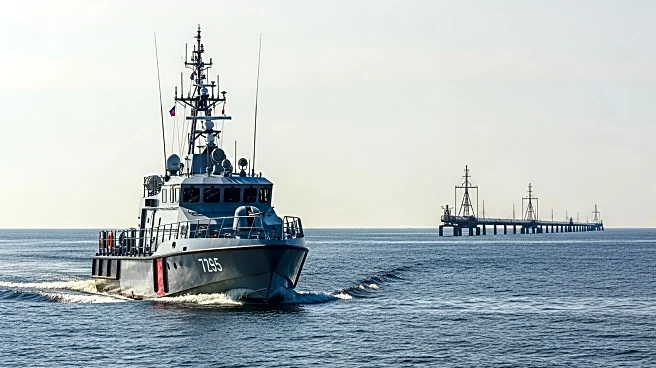What's Happening?
Polish border guards reported observing a Russian fishing boat acting suspiciously near a gas pipeline off the town of Wladyslawowo, raising concerns about potential sabotage operations in the Baltic Sea. In response, Poland's pipeline operator PERN plans to sign a preliminary agreement with a unit of the country's defense ministry to extend fuel pipelines to connect with the NATO system. Additionally, Polish Foreign Minister Radoslaw Sikorski stated that Poland is not considering severing diplomatic relations with Russia but must address information and hybrid attacks.
Why It's Important?
The incident underscores ongoing tensions in Eastern Europe, particularly regarding energy security and geopolitical stability. Poland's move to integrate its fuel pipelines with NATO's system reflects a strategic effort to bolster national security and safeguard critical infrastructure. The situation highlights the broader challenges faced by countries in the region as they navigate complex relations with Russia, balancing diplomatic engagement with defensive measures.
What's Next?
Poland's Ministry of Finance is set to hold a tender for treasury bills, indicating ongoing economic activities despite geopolitical tensions. The integration of fuel pipelines with NATO's system may lead to increased collaboration between Poland and NATO allies, potentially enhancing regional security. Monitoring of suspicious activities in the Baltic Sea is likely to continue, with possible diplomatic discussions on addressing hybrid threats.
Beyond the Headlines
The incident may prompt broader discussions on the role of international cooperation in addressing security threats. It highlights the importance of maintaining robust surveillance and intelligence capabilities to detect and respond to potential sabotage activities. The situation also raises questions about the balance between national sovereignty and collective security arrangements.










